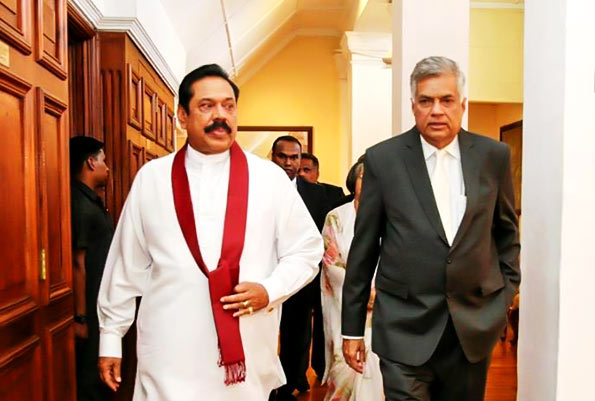Ranil replies to Mahinda on GSP Plus

Contradicting former president Mahinda Rajapaksa who said that Sri Lanka would have been better without the GSP Plus facility, Prime Minister Ranil Wickremesinghe said yesterday that it would help the country to capture a market with a population of 500 million.
He said Sri Lanka had earned US dollars 2,500 million from the export of apparel in 2003.
“Sri Lanka lost GSP Plus in 2015 and it had earned US dollars 4,800 million in 2015. However, Bangladesh, which enjoyed GSP Plus all along, had earned US dollars 26, 000 million in the same year.
“Bangladesh has no balance of payments problem but we do,” he said.
The Prime Minister was addressing the beneficiaries of the Gajasamaragama Housing Scheme in Lunugamwehera yesterday.
(Source: Daily Mirror – By Yohan Perera)

Latest Headlines in Sri Lanka
- Sri Lanka President urges improvement in tourist infrastructure and services March 17, 2025
- MP questions how Government can find Easter Attack mastermind when it can’t find IGP March 17, 2025
- Sri Lanka health professionals to strike for 24 hours from tomorrow March 17, 2025
- Court dismisses IGP Deshabandu Tennakoon’s petition, orders immediate arrest March 17, 2025
- Nomination process for Sri Lanka’s LG elections starts today March 17, 2025



GSP + is available only to low income and lower middle income countries as defined by the World Bank. A country should be in either of the two categories for the last three year period to become eligible for the facility. In terms of this requirement, when a country gains the upper middle income country status, there is a natural exit from GSP +.
According to the World Bank classification, done in 2016, countries with a per capita income of $ 1,025 or less are categorised as low income, those between $ 1,026 and $ 4,035 as lower middle income, countries between $ 4,036 and $ 12,475 as upper middle income countries. Sri Lanka with a GNI per capita of $ 3,836 in 2015 is pretty much close to this threshold of natural exit from the facility. With the current projected growth rates, it will pass the threshold easily by 2018. Since it should be observed for a three-year period, Sri Lanka will have to exit GSP + by 2020. As such, there is only a very brief period of time available for Sri Lanka to enjoy the benefits of GSP +.
GSP
Don’t forget the chemical factory that explode in Bopal India and the five story garment factory that collapsed in Bangladesh killing and injuring many workers,
GSP is to get the advantage from the poor wounded countries for cheep labor and avoid pollution from the reach countries.